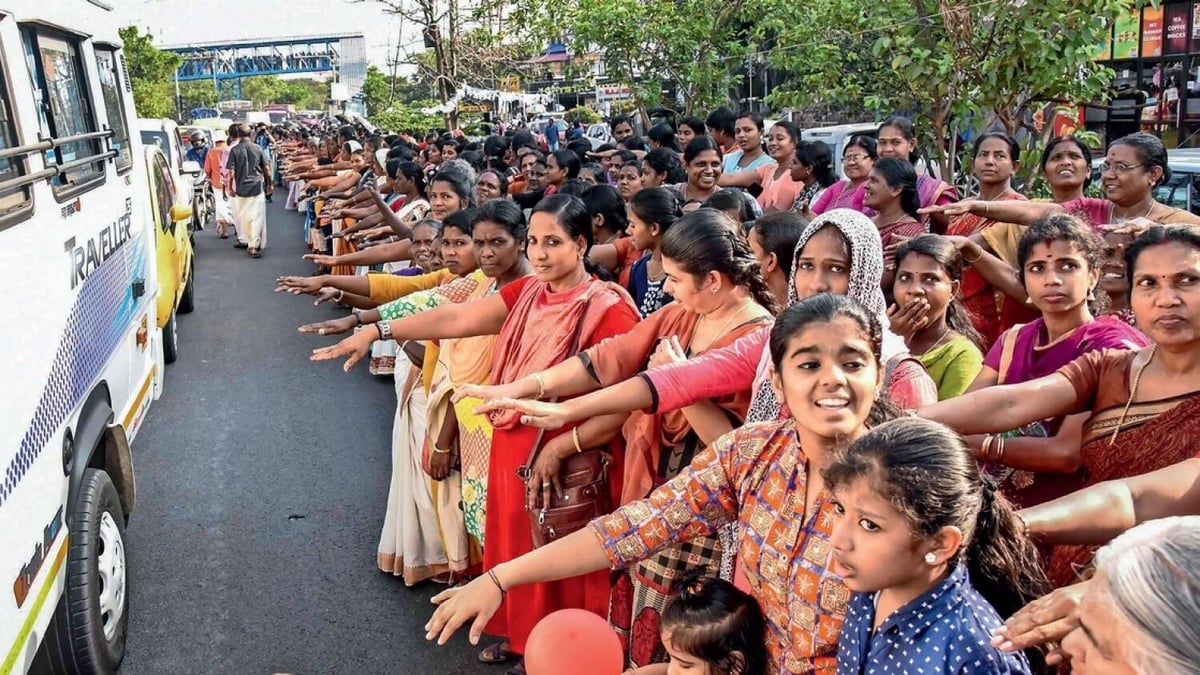Breaking Bias Chains: Women’s Empowerment Demands Systemic Action Beyond Promises | File Photo
Real empowerment demands more than hashtags—it requires urgent action to tackle biases, share responsibilities, and invest in their potential.
Why do we celebrate women’s empowerment with hashtags and slogans while ignoring the harsh reality? Women continue to bear the brunt of unpaid care work, struggle to step into the workforce, lack financial literacy, and face constant undervaluation of their contributions. How long will men and women alike tolerate this systemic failure that suppresses half the nation’s potential? Despite decades of empty rhetoric and symbolic milestones, India remains trapped in a cycle of shallow gestures, avoiding the complete societal overhaul needed for true empowerment.
Women in India, whether in rural villages or urban sprawls, are overworked and undervalued. The disproportionate burden of unpaid care work is one of the greatest barriers to women’s workforce participation. Cooking, cleaning, child-rearing, and elder care are seen as intrinsic to a woman’s role, rather than as essential services deserving recognition or compensation.
Indian men are yet to fully share household responsibilities. According to the NSSO’s Time Use Survey (2019), women in India spend nearly five hours daily on unpaid care work—three times more than men. This imbalance is not unique to India; globally, the so-called “care economy” thrives on women’s unpaid labour, deeply entrenched in social and cultural biases.
India’s women are not just overworked; they are held back by societal biases perpetuated by both men and women. Women, hailed as the backbone of families and workforces, are caught in a double bind. Expected to juggle unpaid care work and career growth, they are judged for seeking personal development. This collective failure to dismantle biases undermines not only women but society as a whole.
Globally, the bias against care work is rooted in the perception that caregiving is a “moral duty” rather than a skill demanding investment. Cultural norms tie a woman’s worth to her ability to nurture and sacrifice. Such expectations, passed down through generations, normalise the exploitation of women’s labour within families and communities.
Countries that have tackled these biases show what is possible. In Norway, subsidised childcare and generous parental leave policies have shifted care into a shared societal responsibility. Japan’s “Womenomics” strategy, while imperfect, has introduced workplace reforms, childcare subsidies, and equal pay initiatives, increasing female workforce participation. Rwanda has broken stereotypes with women holding 61% of parliamentary seats, and Sweden’s gender-neutral parental leave has normalised fathers as active caregivers.
India’s response has been fragmented. Gender budgeting, introduced nearly two decades ago, remains a routine exercise rather than a transformative policy. In 2023–24, just 5% of the Union Budget was allocated to women-specific schemes, showing the issue’s low priority. Initiatives like Beti Bachao, Beti Padhao and Pradhan Mantri Matru Vandana Yojana have limited impact due to inconsistent execution and a lack of long-term vision.
The urban-rural divide exacerbates the problem. Rural communities provide some respite through a sense of community, but lack infrastructure and job opportunities to foster economic independence. Urban women, meanwhile, face the isolation of nuclear families, managing caregiving alongside formal work, compounded by the absence of affordable childcare, elder care, and safe transport.
Workplace biases further restrict women. Despite increasing education levels, women face discrimination in hiring, promotion, and pay. The perception that caregiving makes women less “committed” undermines their professional growth. The global “motherhood penalty” stalls women’s careers, while men benefit from a “fatherhood bonus.”
Systemic action is urgently needed. Recognising unpaid care work is a critical first step, whether through direct income support or tax incentives for shared caregiving. Expanding childcare infrastructure and offering flexible workplace policies can help women balance responsibilities. Equal pay for equal work must be enforced, and companies incentivised to adopt women-friendly policies.
Cultural change is equally crucial. Educational curricula should normalise shared caregiving roles, and media campaigns must challenge stereotypes. Encouraging men to take parental leave and actively participate in household work will help reshape expectations.
Empowerment must translate into tangible change. It is not about giving women “permission” to participate; it is about dismantling barriers that prevent their progress. India must confront the deeper issues behind its symbolic gestures to truly empower its women. Without a cultural shift and concrete policy implementation, the systemic failure will persist.
A nation marginalising half its population cannot hope to progress meaningfully. India’s true test of growth lies in unlocking the untapped potential of its women—not through slogans, but through systemic, sustained change. It is time to stop talking and start doing—for the sake of the economy, society, and future generations.
Authors: The writers are Dakshita Das, Policy Expert & Former Civil Servant
and Dr. Srinath Sridharan, Corporate Advisor & Independent Director on Corporate Boards X: @ssmumbai
